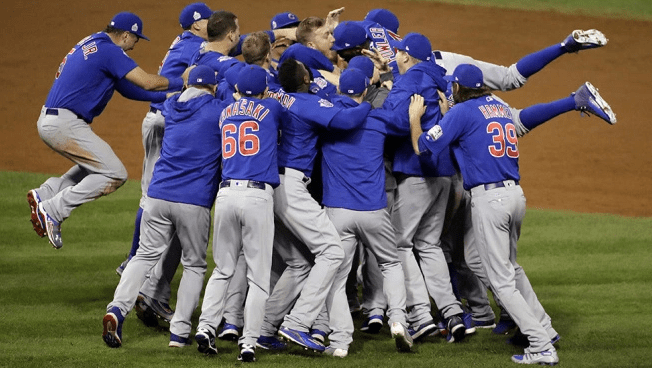
The Islamic State, as we know it, is coming to an end.
When a coalition led by Iraqi forces last month launched a military offensive to take the city of Mosul back from ISIS, they attacked the last legitimate stronghold of the terrorist group. The effort is working.
And while this offensive is liberating parts of Mosul that have been in ISIS control for years, it’s also exposing tremendous humanitarian concerns, with thousands in need of urgent assistance and basic necessities.
It’s those kinds of needs that the Iraq-based Preemptive Love, the relief organization run by Jeremy Courtney, exists to meet. I talked with him yesterday to find out what it’s like on the ground and how those of us removed from the violence can help.
What’s going on in Iraq.
First of all, Jeremy, what’s it like over there? Is it visibly different than before ISIS started getting pushed back?
Yeah, absolutely it’s different. Things have ramped up significantly over the last couple of weeks, since October 17th when the battle to liberate the city of Mosul and its environment from ISIS control began. It’s different inasmuch areas of land and individual villages that have been under ISIS control for two years and some months are now free.
I was in a village just yesterday that was under ISIS control the day before, in fact when I was there we still had ISIS fighters. There was gunfire all around, the Iraqi military that we were with was still actively fighting against ISIS members a few streets over. A suicide bomb actually went off when we were in the village. We could feel the punch, the house was rocked that we were in. There were dead ISIS fighters in the street right at my feet where we were.
So this is different. This is an area that has not had any military contestation over the last couple of years, and in fact this morning Iraqi security forces have fully breached the city, or have officially breached the city of Mosul and there have been no Iraqi security forces inside Mosul for more than years now. So this represents the beginning of the end of the ISIS organization as we know it today in Iraq.
For those of us who aren’t as familiar, can you tease out the connection between taking Mosul and the end of ISIS as a formal organization?
ISIS was a fairly unknown, internationally completely unknown band of insurgents when they strung onto the world’s stage in June 2014 by overrunning the city of Mosul, driving out ostensibly some 30,000 Iraqi soldiers who cut and run. That’s the popular story.
The story we hear from Iraqi soldiers themselves is that they were actually commanded to retreat. But in any case, the story that made its way across the world was that 30,000 Iraqi soldiers just cut bait and ran away. But because of how alarming that was, because of the fact that the U.S. had spent tens of billions of dollars training that very army. It created this kind of made-for-TV story about the wastefulness and ill-advised U.S. adventure in Iraq. The ineffectual training and equipping of the Iraqi military and the cowardice with which they ultimately fled in the face of a couple hundred ISIS fighters. This earned ISIS a massively outsized reputation for being ruthless, brutal, that they could cause an army of 30,000 to run when they faced them.
So then ISIS continued marching through Iraq overtaking village in town and city after city until they controlled about a third of the entire geography. That connected to what they controlled in Syria, coupled with the never-before-seen use of social media to promote and market their atrocities really tied a lot of their power to what they accomplished in Mosul. That wasn’t where the organization started, but that was where their infamy caught fire in a lot of ways.
In a pretty brazen move, Abu Bakr Al Baghdadi, the self-proclaimed khalif of this Islamic state stood in the grand mosque in the city of Mosul and made the declarant that this is now a caliphate. I can’t remember the last time that it was officially said to have existed, but it hadn’t existed for years and he’s saying now the caliphate is back.
So if the coalition and Iraqi forces are able to retake Mosul and drive ISIS out or kill many of them, it will significantly undercut any claims they have to being a caliphate, it will significantly undercut any claims they have to be a fully functional organization in Iraq anymore. They will only have one other relatively meaningful area that they control and the fight will turn to that area next after Mosul.
How are these latest developments affecting the work of Preemptive Love?
It’s a little bit of all of that. So we are absolutely working in places that we weren’t before and even for example, the place where I was yesterday, was literally under complete ISIS control the day before and was still having ISIS fighters in it when I was there, so that’s not a place that we ever would have been able to access without some kind of security. Well, there would be no way to access an ISIS-controlled town as a westerner right now. So that’s significant.
What’s equally significant is the fact that as an organization, we are operating in these conflict zones. We’re not in the fallback positions where all of the official aid is. All of the massive U.N. and U.N. funded organizations, all of our counterparts, all the other big-box groups, every other Christian organization that your readers would likely know are not operating in the conflict zone, so we are taking an approach of going toward the people who need it most.
What are the needs that you’re finding as you’re going to these people?
It’s every single imaginable thing that you or I would want for our families and our kids to stay alive. Food, water, medicine, shelter, blankets, clothes and every other imaginable thing that people need.
How you can help.
How can those of us on this side of the ocean who hear about what’s going on in Iraq help? What does Preemptive Love need that we can help with or what else can we be doing to help out?
Ultimately it comes down to resources. We have all the staff, access and connections to political, tribal, religious, government friends that we need to get the job done, we just don’t have enough money to get the job done. We are not U.N. funded which is what allows us to go into the hard places where people need it most, but the downside of not being U.N. funded is that we run out of private money rather quickly. So it really comes down to funds.
One thing to note is we’re non-sectarian, non-bias group, but I do think it’s worth noting that we are helping Muslims and Christians and this is a Muslim and Christian homeland. This is very much a Christian issue.
In 2014 when this story broke, one of the reasons it broke is because ISIS was going door to door in Mosul marking Christian homes for extermination and marking them with a red letter N with a spray paint can. That N was calling them “Nazarani”—the followers of the Nazarene—and our team actually helped break that story to the world. We started the social media “We Are N” campaign that reached all the way to the Vatican and CBS news and some others covered it. So getting that word out helps start with us. I think RELEVANT helps with that. And I think that’s a way we can kind of complete the circle on that. It’s not right that we would only scream and shout in 2014 and not be apart of helping see this thing through to completion in 2016.
How long do you foresee the needs being dire?
It’s not at all out of the question that the crisis level of it could still be for months and months. We could easily see the crisis situation folding over into February or March, it kind of just depends on how long it takes to liberate the city of Mosul itself. So we’ve already seen thousands and thousands be displaced, but the military just breached the city itself today and the city is thought to contact 1.5 million people perhaps.
As safe humanitarian corridors start to be created and people even have the option to flee we’re not really sure how fast they will flee and where they will flee. I think the safest thing to say is this is gonna last for many months. We consider ourselves to be first-in, last to leave. So I’ve described the first-in side of the equation, but the last to leave means we’re gonna stick around in Mosul and help bring people back to life where they’re standing on two feet again, earning money for themselves, rebuilding schools, helping start jobs.























